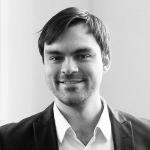The German elections are a wake-up call for Europe’s most powerful country—and beyond. Yes, Angela Merkel will again be Chancellor. But Germany will once again have Nazi sympathisers in parliament: The Alternative für Deutschland became the third largest party in the nation, gaining 14% of the vote. The two large parties Christian Democratic Union (CDU) and Social Democratic Party (SPD), which had formed the government coalition, had historically bad showings, especially among first-time voters.
On the surface, this discontent in Europe’s most successful economy seems puzzling. It is doing as well as it has since reunification—at least if you judge by its stable 2% growth rate and the low unemployment rate. The German stock market is at an all-time high and youth unemployment is the lowest of all of Europe.
But what our headline economic indicators simply do not account for are the real and at times existential concerns the population experiences, such as stagnating wages, rising income inequality, the exploding informal sector with precarious work environments, and fear of immigrants. If for a struggling citizen this is as good as it gets, wouldn’t you question the system you live in? Our economic models and bigger intellectual projects such as the European Union are no longer responsive to people’s growing concerns, and economists and elected officials can appear self-absorbed and concerned with questions that are beside the point.
It’s clear that the big questions don’t answer themselves. Those advocating visionary projects such as European integration cannot afford to leave them unanswered, or we invite disaster.
As a young economist who came of age during the global financial crisis, the parallels between blind spots around the EU project—Germany’s so-called second economic miracle—and my discipline are eerily familiar. Economists largely missed the looming disaster of the global financial crisis of 2008 which laid bare the intellectual shortcomings of a generation’s worth of work in my field. We could accept the big questions as answered and solved: free markets are the best way to coordinate our lives, free trade is beneficial, humans are rational, and governments should only interfere if markets fail. Economists listened primarily to each other and lost sight of the world unfolding around them.
Young, emerging economists have found many things that the prevailing theory cannot account for. In addition, many key questions cannot be posed within the confines of the existing set of models. For example, mainstream macroeconomic models do not account for a financial sector or banks. The assumption is simply that they work and thus there is no need to study them more closely. Orthodox theory also assumes economic actors are rational. Of course, were that true, financial bubbles wouldn’t be possible. Too infrequently have economists asked themselves what’s missing from these models and failed to see the big picture.
Organisations like the Institute for New Economic Thinking (INET) formed to address these challenges in the aftermath of the financial crisis. INET is responding to the need to re-frame the conversation in economics and foster research agendas that otherwise would not find support. Student initiatives like INET’s Young Scholar’s Initiative (YSI), among others, have grown across the world to facilitate research outside of existing institutional settings in a supportive community. We want to bring back economic history and the history of ideas, the philosophy of science, a deep understanding of the financial system, and new theoretical frameworks that draw from other fields, including political science and the humanities.
Because the discipline has failed to fulfil its social function to provide intellectual guidance, we as the next generation are taking it upon ourselves to step into this void. We are far from answering the challenging questions of our time, but we are certainly getting closer to asking the right questions.
The big questions are back. Insightful responses to the many challenges of our time are as yet unformed. The idea of globalisation, the European integration project and the very model on which we build our economies needs to be rethought to address growing discontent. Otherwise, we risk turning over this turf to extremist and destructive forces. The German election - like Brexit, the election of U.S. President Trump, and other developments people found surprising at the time - is a wake-up call. As young thinkers, we need to continue to take seriously our responsibility to think deeply and ultimately articulate a better way forward.



